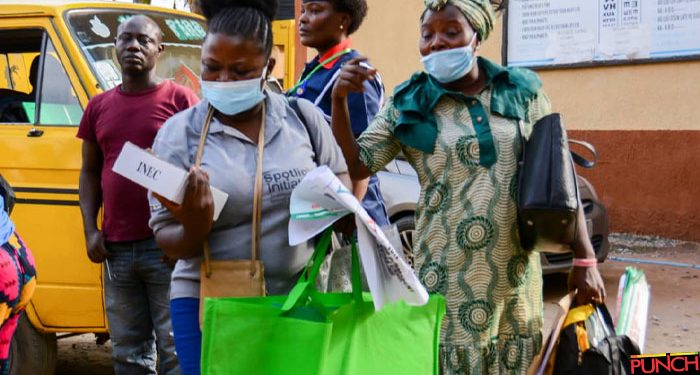On July 12, Lagos State conducted local government elections to fill 57 chairmanship and 376 councillor positions across its 20 local governments and 37 local council development areas. The outcome was an unambiguous sweep: the ruling All Progressives Congress secured all chairmanship seats and 375 councillorship positions. Only a single councillorship seat—Yaba Ward D—went to the opposition Peoples Democratic Party.
Yet, the numbers tell a far more troubling story than the winning tally sheet suggests. Despite Lagos boasting over seven million registered voters, fewer than 300,000 people were estimated to have turned out. This represents roughly three to four per cent of the voting population.
Electoral officials reported voter turnouts in the single digits in numerous polling units. At one Ikeja polling unit, only five of 62 registered voters had cast their ballots by midday.
In parts of Alimosho, Ajeromi-Ifelodun, and Badagry, polling centres were practically deserted, with electoral officers sitting idle behind stacks of unused materials.
This is not democracy in action; it is democracy in retreat.
Any election that so thoroughly disenfranchises its electorate cannot be considered free or fair. Numerous reports from credible observers detailed extensive logistical failures.
Lagosians are not apathetic by default. This megacity remains one of the most politically aware and socially engaged in Nigeria. Yet, most citizens made a conscious choice to stay away from the polls.
Among Lagos’s diverse demographics, a common thread emerged: a deep conviction that the outcomes were predetermined, that their votes would not count, and that participating would only confer legitimacy on a fundamentally broken system.
When the electorate loses faith in the integrity of elections, political participation shrivels, and governance becomes detached from the needs of the people.
The local government is intended to be the foundation of participatory democracy. As the closest tier of government to the people, it is responsible for service delivery, community development, and civic representation. Yet, what transpired in Lagos was a hollow ritual—an exercise in electoral formality stripped of substance, competition, and legitimacy.
The dominance of a single party in all but one ward raises serious questions about political plurality. It is implausible that, in a megacity of over 20 million people spanning diverse ethnic, religious, and economic classes, a single political party would genuinely command uniform support in 375 of 376 wards.
There is no mitigation that the ruling party wins the LG polls in all the other states in Nigeria.
Indeed, such outcomes erode trust and suggest an uneven playing field, where opposition parties were either locked out or ground down by a structurally biased system.
The ruling party’s control over logistics and local institutions creates this uneven field, discouraging opposition participation. There remains no digital infrastructure, such as biometrics or real-time voter verification, to authenticate processes or alert voters to changes.
Until these failings are acknowledged and addressed, elections in Lagos will continue to be reduced to elaborate political theatre.
Reclaiming the democratic value of local elections in Lagos requires bold, structural reforms.
Lagos should implement transparent biometric systems akin to the Bimodal Voter Accreditation System used by INEC, along with the electronic transmission of results.
The state should initiate a mail-in ballot system to encourage voter participation and reduce physical inconvenience.
Most importantly, electoral results and processes must be subjected to external review, and candidates or parties that perpetrate irregularities sanctioned.
With national elections just two years away, Lagos must see this moment for what it is: a critical juncture.
Democracy is not self-sustaining. It requires vigilance, transparency, and the courage to fix what is broken.
Lagos, long seen as Nigeria’s most politically sophisticated state, cannot afford to lead the country in the wrong direction.
LASIEC should reclaim its autonomy and restore the people’s confidence. Local governance must not be treated as a political reward but as a sacred trust between the government and the governed. The time for reform is now.
















































